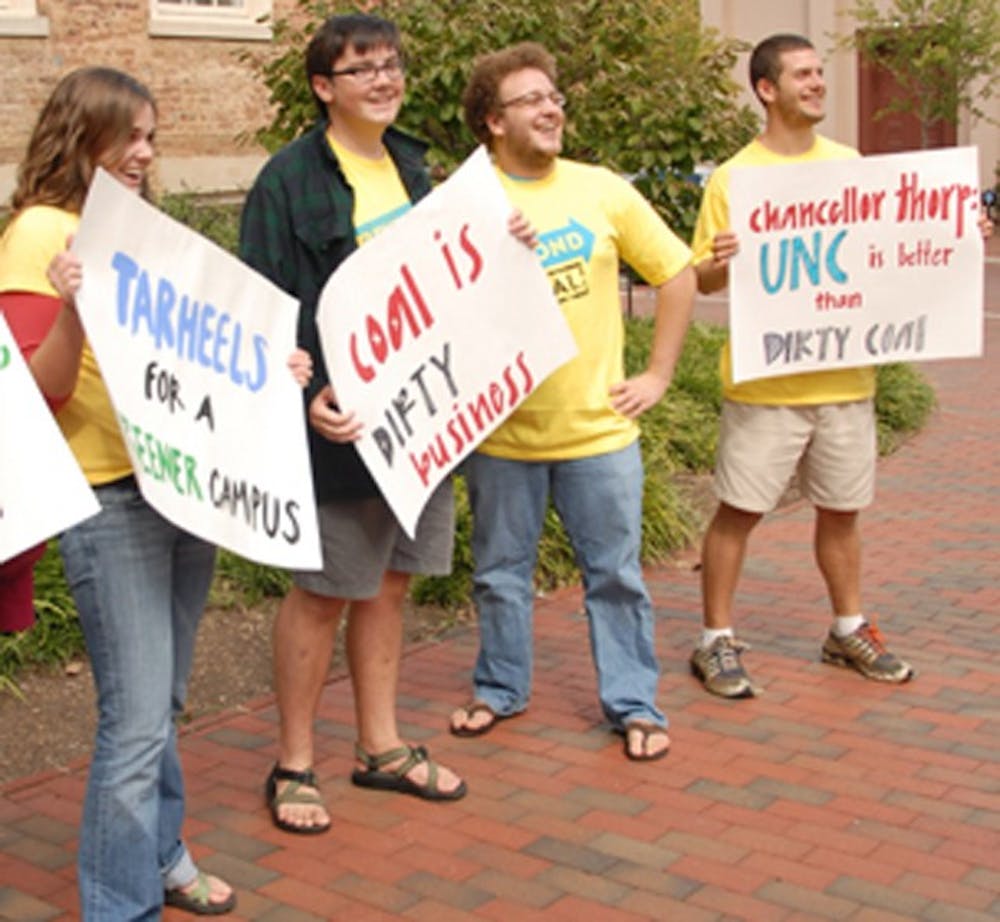This story appeared as part of the 2010 Year In Review issue. The Daily Tar Heel resumes publication Jan. 10.
As the year comes to a close, the University has begun taking further steps toward a coal-free future.
The Energy Task Force met monthly during the spring and fall semesters with that purpose in mind, developing recommendations for UNC’s path toward sustainability. The takeaway from the meetings was the University’s promise to go coal-free by 2020 among other goals.
The University made the pledge in May, which came less than three months after the first meeting of the task force. The announcement, delivered from the top of Rams Head Center, featured a reading of Dr. Seuss’ “The Lorax.”
Members of the Sierra Student Coalition, whose lobbying of UNC helped lead to the creation of the task force in the first place, were present. The group protested UNC’s coal usage on the days of its meetings with everything from anti-coal cheers to dances.
UNC UNCBecause UNC’s coal-fired cogeneration plant on Cameron Avenue requires at least 50 percent solid matter to be fired, the primary means being pursued by the University is biomass. Some research is being done with Orange County’s municipal waste.
In September, a 50-ton test shipment of wood pellets from Franklin-based Carolina Wood Pellets arrived at the cogeneration plant, marking one of the first steps in the transition to biomass.




